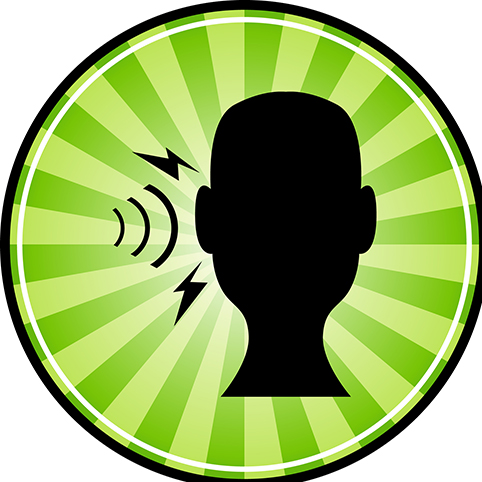
Photo: Deposit Photos
As many extended families prepare to gather for, perhaps, their first Thanksgiving dinner since the pandemic began, experts at the American Speech-Language-Hearing Association (ASHA) are offering advice on how to help loved ones who are hard of hearing more fully participate in these celebrations.
More than 48 million Americans have hearing loss.
A recent national poll from ASHA and YouGov, a British international Internet-based market research and data analytics firm, headquartered in the UK found that almost half of American adults (46%) say they have a close family member or other loved one who has difficulty hearing. And although untreated hearing loss is associated with poorer quality of life as well as an increased risk of cognitive decline and dementia, depression, falls, and a host of other serious conditions, many adults do not seek treatment for years, even decades—if ever.
“While this will no doubt be a joyous time for relatives to reconnect after missing many holidays together due to COVID-19, some may notice a loved one is having more difficulty understanding others or following the conversation—or perhaps seeming more withdrawn than the last time they were together,” said A. Lynn Williams, PhD, CCC-SLP, 2021 ASHA President. “These are tell-tale signs of hearing loss. Families can help these loved ones better enjoy important celebrations—and can be an integral voice in encouraging them to seek help for their hearing loss.”
Here are tips to help family members with hearing difficulties:
Reduce background noise
Competing noise from the television or radio can make it more difficult to hear.
Take turns while talking
It can be challenging to follow the conversation when multiple people are speaking at once. Encourage everyone to adopt this practice.
Speak clearly, but don’t shout
Louder isn’t necessarily clearer—and nobody likes to be yelled at when they’re trying to enjoy themselves.
Face your loved one directly as you speak
Don’t turn your back on your conversation partner or shout from another room. People often need to see your lips and facial expressions to understand what you’re saying.
Use good lighting
A dim room will limit the visual cues (e.g., mouth movements) that people with hearing difficulties often use to help them decipher what someone is saying.
Be patient
Try not to get annoyed if you must repeat your message. If someone doesn’t understand you the first time, rephrase what you said. Don’t give up on communicating!
Seat guests strategically
Arrange the dinner table with conversation in mind. Seat the person with hearing difficulty next to someone who will help keep them involved.
Understand the impact of masks
Some family members may choose to wear masks while not actively eating. Although masks are an important protective measure against COVID-19, they can dampen sound and make communication more difficult.
Learn the signs of hearing loss
These include raising the TV volume beyond what’s comfortable for others, frequently requiring speech to be repeated, and seeming irritable or withdrawn.
Encourage your loved one to seek help if needed
A person might not think their hearing is that bad or that they’re getting by just fine. But many people underestimate their level of hearing trouble and how it’s affecting other aspects of their lives. Be gentle but persistent. Let them know you’re concerned, that treatment can improve their lives immensely, and that you can help them.
More Tips
The Cleveland Clinic, a nonprofit American academic medical center based in Cleveland, Ohio, offers more tips:
Gain attention
Gain the listener’s attention before you begin talking, for example, by saying his or her name.
Maintain eye contact
Face the person who has the hearing loss. Make eye contact. Your facial expressions and body language add vital information to the message being conveyed.
Keep hands away from face
When talking, try to keep your hands away from your face. You will produce clearer speech and allow the listener to make use of those visual cues by keeping your mouth and face visible.
Speak naturally
Speak distinctly, but without exaggeration. You do not need to shout. Shouting actually distorts the words. Try not to mumble, as this is very hard to understand, even for people with normal hearing. Speak at a normal rate, not too fast or too slow. Use pauses rather than slow speech to give the person time to process speech.
Rephrase rather than repeat
If the listener has difficulty understanding something you said, repeat it once. If they are still having difficulty find a different way of saying it. Use different words with the same meaning.
Use an app to translate from spoken word to written word, or use texting
There are numerous apps that can be downloaded that can allow you to speak into a smartphone and have your words show up on the screen for the person with hearing loss to read. One such app is called Dragon. Texting is also an efficient way to supplement communication.











